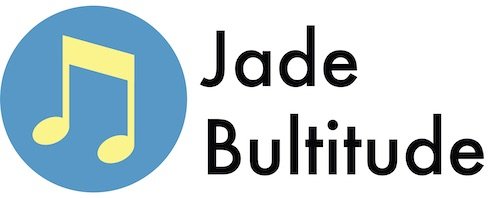Each major scale can be used to create chords in that key. These can be used to create chord progressions that underpin melodies and will allow you to create pieces in any key you like.
Chords in A Major are created from the A major scale. The notes are shown below along with the degree of the scale.
- A – 1, Tonic
- B – 2, supertonic
- C# – 3, mediant
- D – 4, subdominant
- E – 5, dominant
- F# – 6, submediant
- G# – 7, leading note

Chords in A Major
As with all keys, we can create chords on each note of the A major scale. Below you can see the A major scale and then the chords made from each note. Notice that we have a F#, C# and G# in all the chords with those notes in them. This is because A major has three sharps in its key signature.
Each chord is also called a triad and consists of the root note, the 3rd above and the 5th above (in the scale). If we use this idea for every note of the scale, we get all 7 chords in the key of A major.
Here are the chords of A major:
- I – A major- A, C#, E
- ii – B minor- B, D, F#
- iii – C# minor, C#, E, G#
- IV – D major- D, F#, A
- V – E major, E, G#, B
- vi – F# minor- F#, A, C#
- vii° – G# diminished- G#, B, D

As you can see, we can label each chord according to the root note and using Roman numerals. Learn more about Roman numeral chord labelling. For a lightning quick summary, upper case numerals are MAJOR, lower case are MINOR and the little circle means DIMINISHED.
Seventh Chords in A Major
Notice that all of the chords labelled above are three note chords, otherwise known as triads. It is also possible to make four note chords on these different scale notes. These would be called seventh chords. The first note of the chord will stay the same but you will simply add an additional note, a seventh above the tonic. Take a look at the example below:
- Chord I, A major seventh (A – C# – E – G#).
- Chord ii, B minor seventh (B – D – F# – A).
- Chord iii, C# minor seventh (C# – E – G# – B).
- Chord IV, D major seventh (D – F# – A – C#).
- Chord V, E dominant seventh (E – G# – B – D).
- Chord vi, F# minor seventh (F# – A – C# – E).
- Chord vii°, G# minor seventh flat five (G# – B – D – F#).
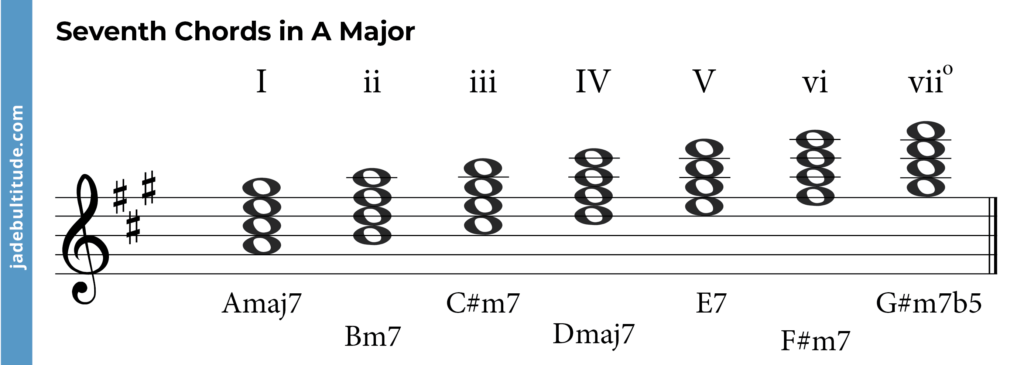
Chord Progressions in A Major
- I – IV – V (A – D – E)
- I – vi – IV – V (A – F#m – D – E)
- ii – V – I (Bm7 – E7 – Amaj7)
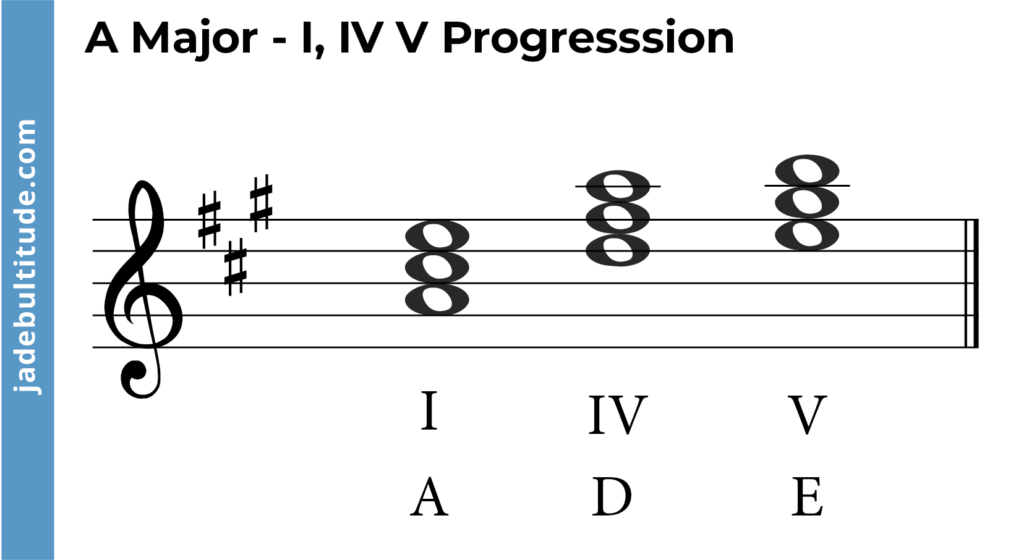
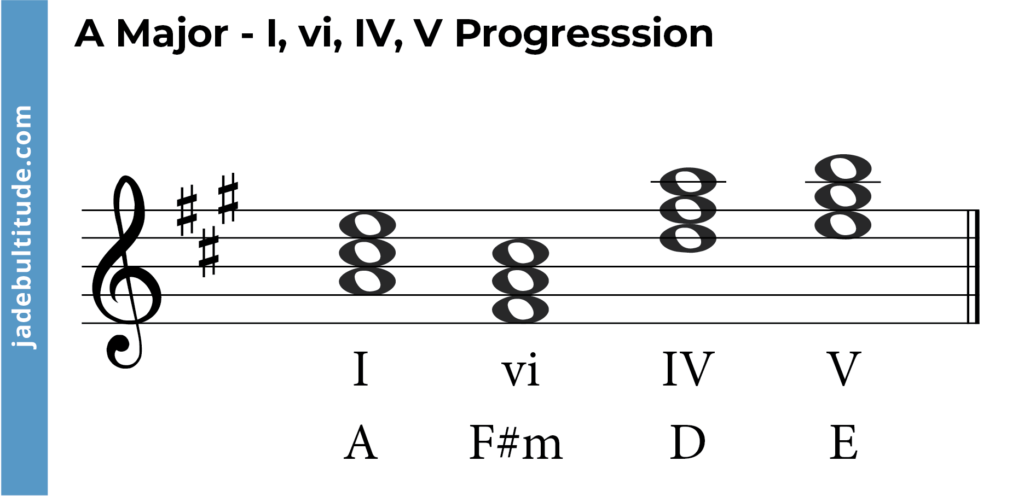
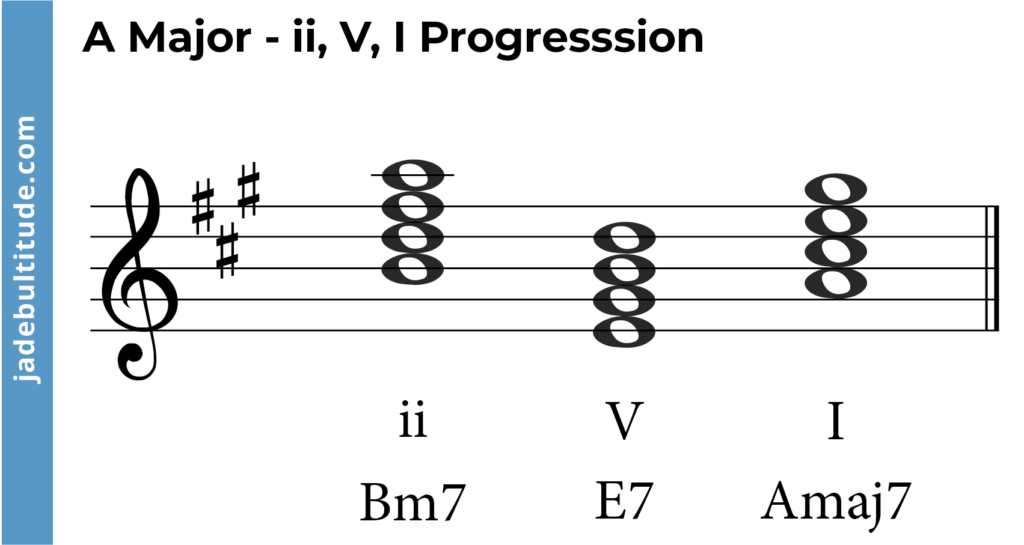
Ear Training and Chords
To develop as a musician you’ll want to be able to recognise chords by ear. This is where ear training comes in. My recommendation for this is Tonegym as they have a comprehensive and fun program for training your ears! It’s what has gotten the best results with for my own students.
In the ‘tools’ section of their site, Tonegym even have a chord player that allows you to listen virtually any chord.
For an in-depth look at ear training, here’s my full review of Tonegym.
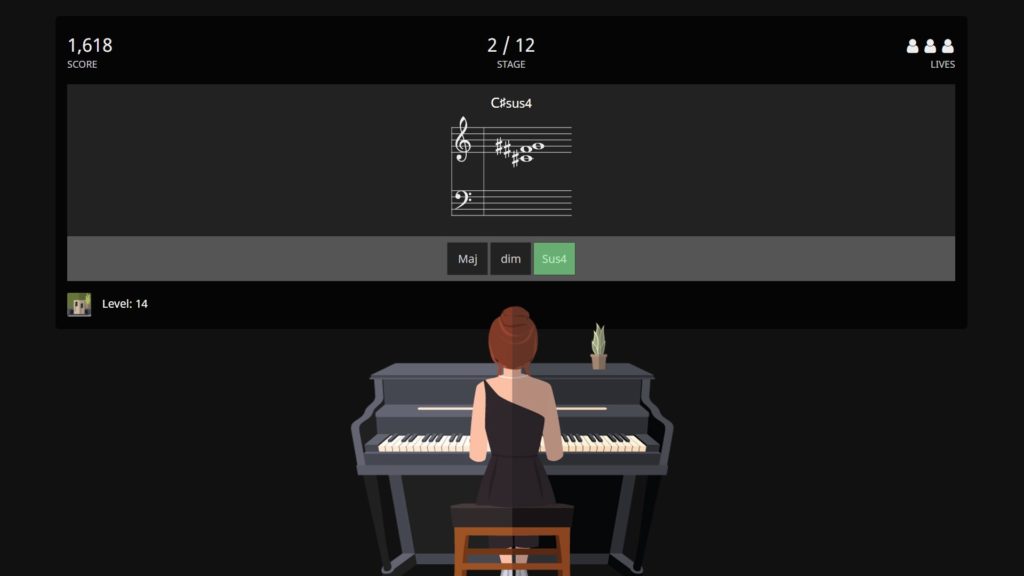
Piano Chords in A Major
If you are interested in playing the piano version of these chords then below are diagrams for chords in A major.
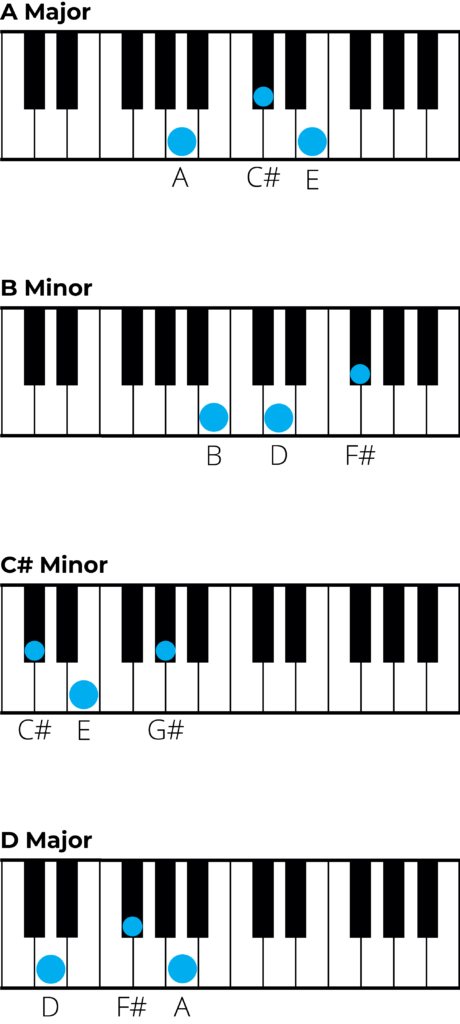
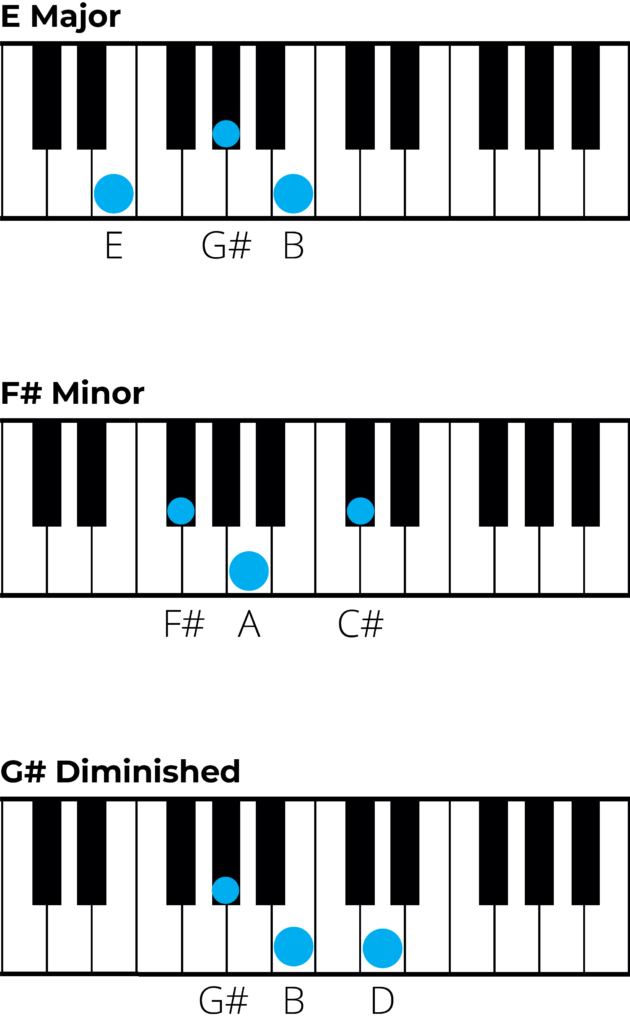
Guitar Chords in A major
Here are the guitar charts for chords in A major. The numbers inside the green circle show a suggested fingering for each chord.
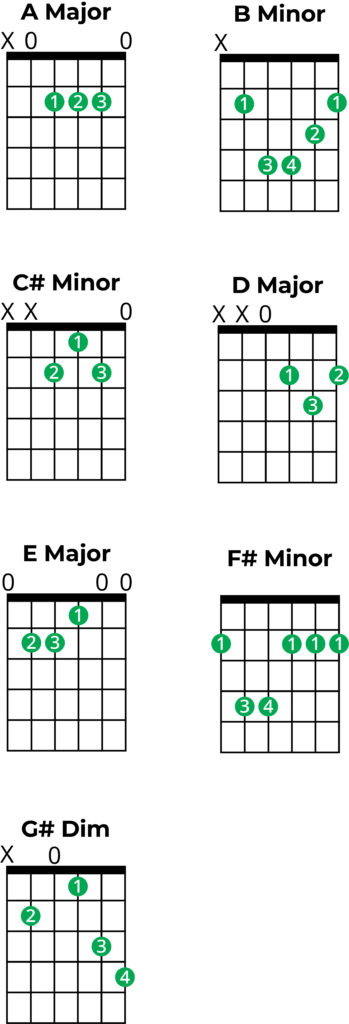
Chord Inversions
There are different versions of these chords that we could play called ‘inversions’. To invert a chord means to change the order of the notes by having the 3rd, 5th or 7th note as the lowest note in pitch. For more on chord inversions on this see our complete guide to chords.
What should I learn next?
- The relative minor of A Major is F# minor. The relative minor key means that it has the same key signature (three sharps – F#, C#, G#) but the scale starts and ends on a F#.
- Learn more about chords with our complete guide
- Learn about a different scale or key signature.
